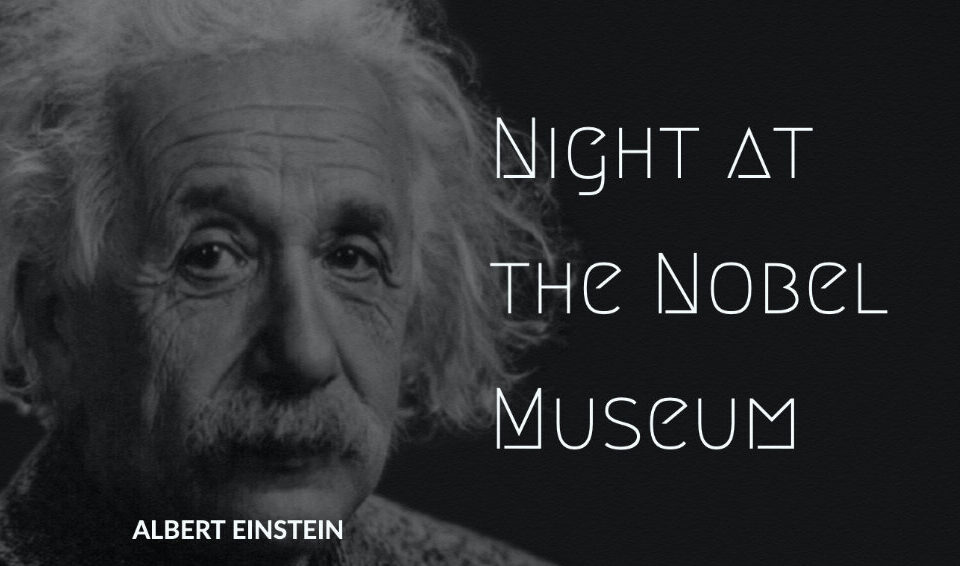ORMSCan Math help improve HR mandates in an organization? This was a question I posed to Atanu Basu while I was interviewing him for a blog post I was doing on Predictive Analytics for HR. Atanu works for this firm called DataInfoCom who have been working on solving a bunch of business problems for companies like Dell and Microsoft. Since then I have been talking to him about potential opportunities for building Predictive HR. Recently the Operations Research and Management Sciences Today magazine in their October 2010 issue printed the article Atanu and I co-authored on possible opportunities for using Predictive Analytics for four major areas of HR. Here is the article that appeared in the ORMS Today magazine.Listen randomly to ten interviews of Global Fortune 500 CEO’s and you will hear them mention “it is all about the people” in the company. HR professionals have the important mandate of making a business successful by acquiring, engaging, and developing talent. While some corporations are legendary for their people practices – GE and PepsiCo come to mind – most companies still go about the business of talent acquisition, retention, and development the same way they did in the past. While there has been intent, in the absence of the appropriate tools, HR and business leaders have found it challenging to deliver on the HR agenda. Predictive Analytics and related technologies have the ability to transform HR as we know it. We started exploring this area over a year ago.Let’s look at the HR mandates and explore how predictive decisions can deliver business value.
Creative people are a rare species in an organization. They are a strange breed. They are a minority. Unlike many other minority support groups, they don't have anyone to speak up for them. Creative people do not always choose the performing arts or the media to build careers. In fact if anything at all, the ones who are doing the solo act or those whose career lies outside the grip of an organization does not face the same challenges that the creative people face within the organization. Organizations have a way of taking over the lives of people who work there. We all have the ability to be creative. A child can spend hours playing with a box imagining it to be a space ship, a piano, a turtle... The organizations can tap into the creative person hiding inside all employees to make the workplace a more interesting place to be. The basic premise of what I am suggesting is that creative people are like performing artists. They derive their thrill by simply practicing their craft. But what takes them to the next level is appreciation from others. Creative people take their craft up by a notch each time someone applauds their work or idea. A part of them slowly wilts when their work and ideas go unnoticed and unappreciated.
Every year since 1901 the Nobel Prize has been awarded for achievements in physics, chemistry, physiology or medicine, literature and for peace. The prize for Economics is strictly speaking an award given in memory of Alfred Nobel that was started in 1968. The Economics Nobel winners for this year were announced today a few hours back. And Ezra Klein made the major goof up (and soon corrected it) on the Washington Post site claiming "Larry Diamond wins the Nobel Prize, continues being blocked by the Senate." The Nobel winners name is Peter not Larry points out Stephen Levitt of Freakonomics fame. According to Alfred Nobel's will, the Nobel prizes were to be awarded to "those who, during the preceding year, shall have conferred the greatest benefit on mankind." The Peace Prize specifically was to be awarded to persons who had been working for "fraternity between nations, for the abolition or reduction of standing armies and for the holding and promotion of peace congresses." The Peace Prize has always been the most controversial. This year's decision is no exception. Liu Xiaobo, the jailed Chinese dissident who won the Nobel Peace Prize, was informed of his award in prison and has dedicated it to those killed when the Chinese government crushed pro-democracy protests around Tiananmen Square in 1989, says the Wall Street Journal.
I believe that HR and Marketing should be part of the same department. Marketing is about having conversations with the external world while HR is about having conversations with the internal world - aka employees. There is something lopsided about organizations. They will spend oodles of dollars trying to know about what the customers want, track their shifts, buy research on how their products compare to the competitors. Above all, a minor shift in consumer preferences will lead to long debates in the boardroom. Ever see the Internal Marketing department obsess about the needs, wants and aspirations of the internal customers? See, how you don't react to that statement unless I say ever seen the average HR department obsess about tracking and studying employees with the same degree of meticulousness? Naah. It is just not in the DNA of organizations. It maybe the same behavior that prompts people to be more courteous and caring towards a potential partner than when that partner morphs into a spouse. Valentine's Day is the one day that majority of husbands buy flowers for their wives. The other 364 days be damned.Until now I thought it is just Marketing and HR that should be merged. Now I am convinced that we need to bring CRM into the same department. I looked up the definition of CRM in Wikipedia."Customer Relationship Management (CRM) is a broadly recognized, widely-implemented strategy for managing a company’s interactions with customers, clients and sales prospects. It involves using technology to organize, automate, and synchronize business processes—principally sales activities, but also those for marketing, customer service, and technical support. The overall goals are to find, attract, and win new clients, nurture and retain those the company already has, entice former clients back into the fold, and reduce the costs of marketing and client service. Customer relationship management denotes a company-wide business strategy embracing all client-facing departments and even beyond. When an implementation is effective, people, processes, and technology work together to increase profitability, and reduce operational costs."Wouldn't it be great if there were to be a CRM aimed purely at salvaging employee grievances? Read the article to know how.
The Wall Street Journal was doing a story on How to Get Hired at Wipro. Then we got talking about things like Leadership Qualities that help people succeed at Wipro and of course the vital question:What helps an individual grow at Wipro?My answer: First would be strategic leadership. This would involve an individual’s understanding of the business environment and ability to inspire people in that direction.The second quality will be customer-centricity. Your customer decides whether you have met their expectations or not. Thus, to grow you need to understand customer priority.The third would be to work in collaboration to get a multiplier effect. This is a huge trade quality one must have. For example, as an individual you are able to achieve X and someone else achieves Y. Instead of working to get a collaborated result that is a sum of X+Y, people should instead work to get a result that is X x Y.Building talent will be the fourth. This helps in promoting different styles of doing the same thing. There is a widely known 70:20:10 model of development that describes what helps people to grow. According to this model, 70% of a professional’s development happens from experiences gained while at the job. If the job is challenging enough it contributes 70% to the individual’s development. Some 20% is driven by the kind of mentor you work with at a level senior to yours and the remaining 10% comes from the formal inputs and classroom sessions you have. Coaching is a significant part of development. The more conversations you have with an expert the more you learn.
Peter Cappelli is the Director - Center for HR at The Wharton Business School. The author of a very insightful book The Indian Way - How India's Top Business Leaders Are Revolutionizing Management and of course Talent on Demand. He has been a thought leader in the area of Talent Management. His recent study done for PWC stirred up a lot of HR professionals. (If you haven't read it, you should and share it with your HR team as well the business leaders.) I asked him a few questions about what he would advise HR professionals at the entry level and also the experienced ones. Read on for more.
Chapal Mehra has chaperoned many well known books into the market. I asked him all the questions that plague first time and most ignorant authors like me. Here is a sample:Abhijit: What are some of the watchouts for first time writers when they sign a contract with a publishing firm?Chapal: Most professional publishing firms have standard contracts which they are not open to amending. It is the way they do business and these cannot be altered to every author’s requirement. In fact they are mostly standardized across organizations with a few changes here and there. As a first time author you need to know what you get into a contract with the publishing firm for :Copyright: Understand the difference between copyright and the right to publish.What territory are you signing the book deal for? Do you want to keep US and UK or Europe rights for yourself?Please check the royalty clause. Are you happy with what the standard royalty is ? Usually it’s the same across publishing firmsPlease check the subsidiary rights. Do you want to give up or keep –translation rights, film rights, tv series rights etc. In most cases I would advise its best to let the publishing company keep these unless you want to do something with them or you think it will have enormous potential which you have a strategy to exploit.If its an advance contract what are your dates of delivery? What are the conditions associated with non- or late delivery?Its always good to discuss the contract with your editor to also understand why the organization is offering the contract that it is . Most large professional publishing firms are not out to rob you. But its important for you to understand their thinking.
I have always been interested in exploring what Corporations can learn from Video Games. Here is what are top reasons:1. How to design the work content/ an activity that people willingly come back to regularly.2. How to design the task such that it is tough and yet people strive to improve their skills by working at it regularly3. How to design a task that is so engaging that people will sneak back to give it a shot even when they are REALLY tired.4. How to create reward systems that are intangible and yet meaningful enough to motivate people to excel even as the tasks become harder and harder.5. How to effortless teach people to collaborate and compete with people across the world (think online games) and raise each others skill level.The biggest insight I had was when I read that a focus on remaining (vs. completed) actions increases the motivation to move up to a more advanced level...
I love the Chilean poet Pablo Neruda's poetry. Had he been alive, he would have turned a 106 on the 12th of July this year. If only I knew Spanish I would have enjoyed the flavor of his poems even more. If reading his translations can be so exhilarating, imagine the impact of reading those poems in in the language in which the poet thought of those words. Writing love poems is difficult. It is hard to become mushy or melodramatic. The ability to express this complex human emotion on paper is not easy. Neruda was a respected diplomat who always used green colored ink to write his poems. He felt green was the color of hope. He was awarded the Nobel Prize in 1971. He shared his insight on poets and poetry when in his Nobel Prize acceptance speech. He said ...









